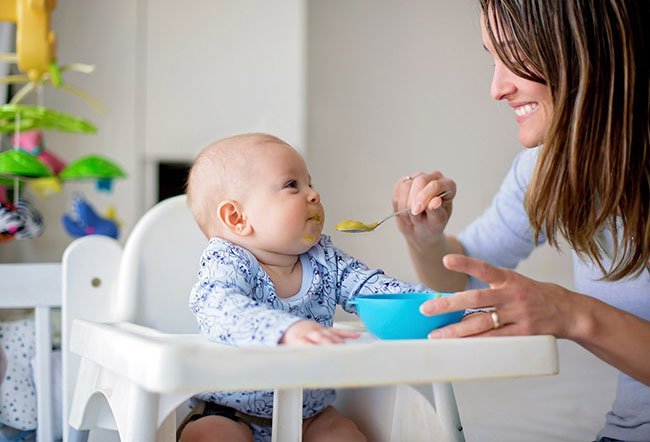What Is the Best Homemade Baby Food?

Homemade baby food is inexpensive and healthier for your baby, as it retains the vitamins and nutrients that are often lost in commercial baby foods. But when you have a busy schedule, the idea of making baby food at home can be a little daunting.
Of course, before introducing solid foods into your baby’s diet, make sure that they are ready and that you have talked to your pediatrician about it. Below are some examples that are easy to make and nutritious:
Single ingredient puree
You can start with a simple puree that has one ingredient. Fruits and vegetables you can try include:
- Steamed carrots
- Mangoes
- Strained peas
- Steamed apples
- Leafy greens such as spinach
- Bananas
- Prunes
- Cooked sweet potatoes
Combination puree
You can combine two or more ingredients to make a combination puree if your baby has been tolerating single-ingredient purees. Do not initially start with a combination puree because it can cause sensitivity and allergies. Some combinations that your baby may like include:
- Apple and spinach
- Meat (ground beef or chicken) with carrots, peas, or other vegetables
- Banana and mango
- Squash and peach
- Apple and cauliflower
- Broccoli and sweet potato
- Squash and sweet potato
- Pear and peach
- Sweet potato and banana
Table foods
After purees, you can introduce table foods, such as:
- Well-cooked eggs (small pieces of hard-boiled or scrambled eggs)
- Soft foods such as cooked mashed potato or sweet potato
- Portions of soft fruits such as ripe mango or banana
- Small, thin pieces of soft meats
- Small slices of meat substitutes, such as tofu, as long as they do not contain a lot of added salt
Why make homemade baby food?
Advantages of feeding your baby homemade baby foods include the following:
- Freshly made with no preservatives
- More economical than prepackaged foods
- Choice of fruits, vegetables, and other foods to puree
- Gets your baby used to eating the same food as rest of the family
What guidelines should you follow when preparing homemade baby food?
Follow these guidelines when preparing baby food for maximum nutritional value:
- Steam or microwave fruits and vegetables instead of boiling them.
- Don’t add salt, sugar, or any other spices.
- Mash or puree cooked foods with small amounts of water, formula, or breast milk to make a smooth paste.
- Always warm up food to room temperature.
- Try to store prepared food in the refrigerator or freezer in airtight containers.
- Avoid freezing food for more than a month. Be sure to label the bag with the preparation date and type of food.
Is it safe to buy store-bought baby food?
Of course, if you simply don’t have the time to make homemade baby food every few days, there is nothing wrong with buying commercially prepared baby foods. While they are more cost effective, they are definitely convenient.
Nowadays, there are quite a few nutritious options on the market, and you can be assured that they have passed safety and quality checks.
